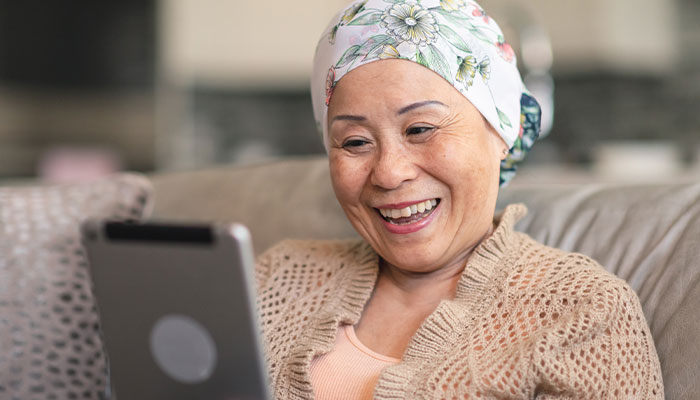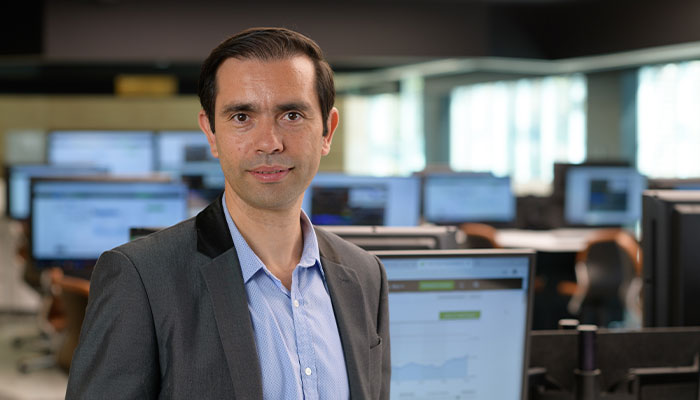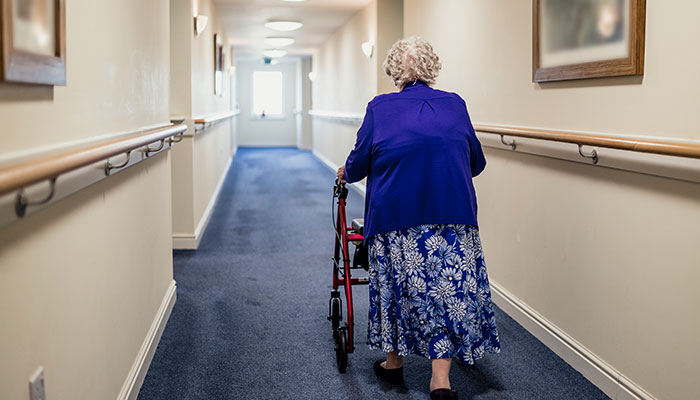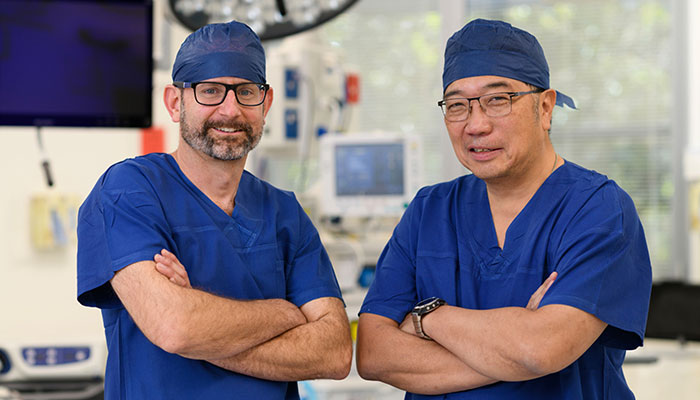Interest in online health communities (OHCs) has grown substantially over recent years, and the onset of the coronavirus pandemic has led to renewed engagement with these digital platforms that offer social and informational support to cancer patients.

Helping hand: OHCs provide information and support for cancer patients that is not available elsewhere, the research says.
OHCs play a critical role in the community as they have the potential to improve outcomes for cancer patients, other health service users, health professionals, and health services and support.
Research by Associate Professor Dr Babak Abedin, from Macquarie Business School, and two co-authors found interaction in OHCs supplements traditional communication between doctors, patients and caregivers.
“Often the user-generated health content in these communities provide information and support that is not available elsewhere,” says the research published in the International Journal of Medical Informatics.
No matter how supportive your loved ones are, they can’t understand what it is you’re going through the same way fellow cancer patients can.
Abedin and his co-authors analysed about 2500 messages posted by cancer patients on a cancer-focused OHC between 2009 and 2018. The research found that the appeal of OHCs crosses all demographics.
“It might be assumed OHCs would appeal to certain demographics more than others, but it soon become apparent location, age, gender, occupation, ethnicity and education level had little impact on how likely it was a cancer patient would join an OHC,” Abedin says.
“If you’re diagnosed with, for instance, breast cancer, there are only a handful of people who can understand what you’re going through. So, what you have in common with others in that situation usually becomes a lot more important than whether they are around the same age as you.”
Pandemic increases online engagement
Since COVID-19, he says engagement with OHCs has increased due to the lockdown and travel restrictions, meaning more patients are looking online for help and guidance.

Stepping up: Associate Professor Babak Abedin (pictured) says Australia is punching above its weight when it comes to vibrant, well-moderated OHCs.
“There is no doubt that the pandemic has had an impact on cancer patients who are not getting out as much due to the lockdown. As a result, I would expect that many more people are tapping into OHCs for help and support.”
- VIDEO How cities can help save the trees
- Aged care: An industry in crisis with plenty of blame to go around
Abedin and his colleagues found OHC posts could be divided into two broad categories: requests for information (e.g. “I’ve got Stage 2 breast cancer, what treatment options are available?”) and requests for emotional support (e.g. “I’ve got Stage 2 breast cancer and I don’t know how I’m going to cope.”)
As is usually the case with online groups, Abedin and his co-authors found there was a minority of ‘active users’ in OHCs and a much larger group of ‘non-active users’.
Seeking information
So, what can cancer patients and those who care for them learn from these findings?
- Don’t be embarrassed to ask for support
“The first post a new OHC member makes is often a request for information and many of those who join an OHC only ever post once or twice,” Abedin says.
It may be that many people who have recently received a cancer diagnosis simply want some information and have no further need to participate in an OHC once they have received it.
Abedin urges those who are seeking more than rudimentary information to ask for it. “No matter how supportive your loved ones are, they can’t understand what it is you’re going through the same way fellow cancer patients can,” he says.
“Our research found that people who join OHCs -- whatever their own challenges -- are keen to give other members of the OHC support. It would be unfortunate if many people who want support and many people willing to give it are failing to form relationships out of a sense of self-consciousness.”
That noted, there’s no shame in lurking either. “Research shows lots of non-active users benefit from seeing others share information and emotional support, even if they don’t participate in those interactions,” Abedin says.
- Not all OHCs are created equal
“We were surprised to find people from all over the world were getting involved in the Cancer Council’s online forums,” Abedin says.
“Australia has a range of organisations willing to devote significant resources to creating vibrant, well-moderated OHCs and is punching above its weight in this area.”
- RIP Tarjay: where did it go wrong for Target?
- How COVID-19 intensifies the disease 'popularity contest'
The lesson here for cancer patients is that they shop around to find the best OHC for their particular needs. The lesson for those in charge of OHCs, be they individuals or organisations, is that it’s not simply a matter of ‘build it and they will come’.
“The most well-patronised Australian OHCs are ones backed by organisations such as the Cancer Council or, in the mental health field, Sane Australia,” Abedin says. “Those organisations are in a position to have one or more staff devoted full time to ensuring their OHC is functioning optimally.”
- OHCs will continue to grow and improve
Abedin and his co-authors conducted their research pre-Coronavirus. But he says it’s not hard to imagine how OHCs could become even more useful given the great digital leap forward that’s taken place since February 2020.
“To take one simple example, health researchers could analyse the Big Data that’s readily available on OHCs,” Abedin says. “That analysis could then be used to provide customised health services to specific types of cancer patients. I’m hoping to do future research into how OHCs can benefit from the wider telehealth revolution.”
Dr Babak Abedin is an Associate Professor in Business Analytics at Macquarie Business School
Seeking help – Online Health Communities
- Breastcancer.org - One of the largest communities in world dedicated to breast cancer with over 200,000 registered members.
Cancer Council Online Community - A supportive online discussion site for people affected by cancer, their carers and families.
Prostate Cancer Foundation of Australia - Australia’s largest online group dedicated to connecting Australian men and families who have been impacted by prostate cancer.
Breast Cancer Network Australia Connects people at different stages of breast cancer, and offers assistance to people living with metastatic breast cancer, as well as their partners, family and friends.



